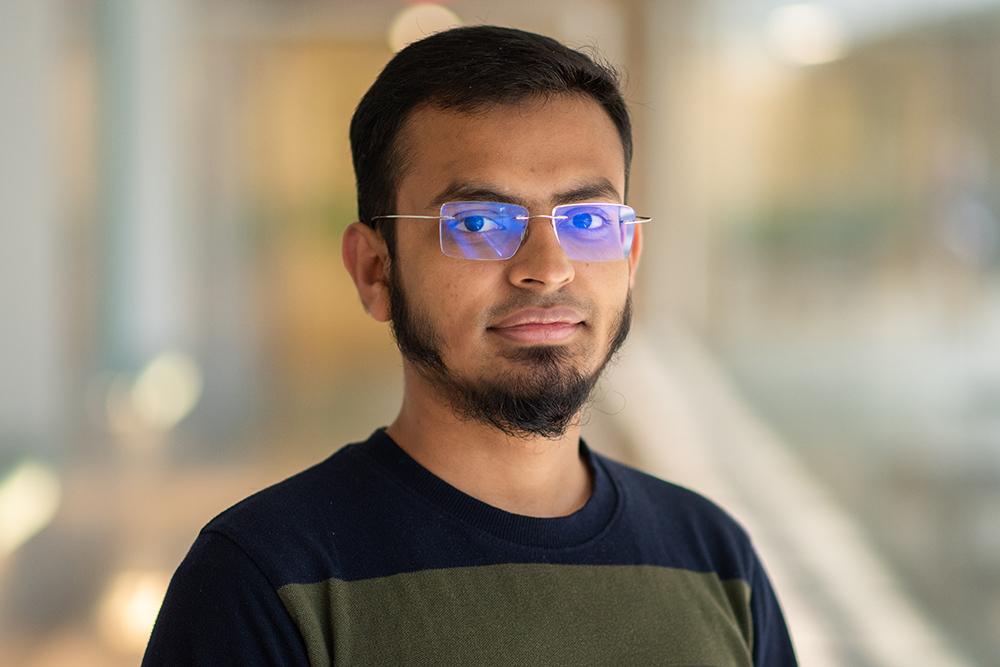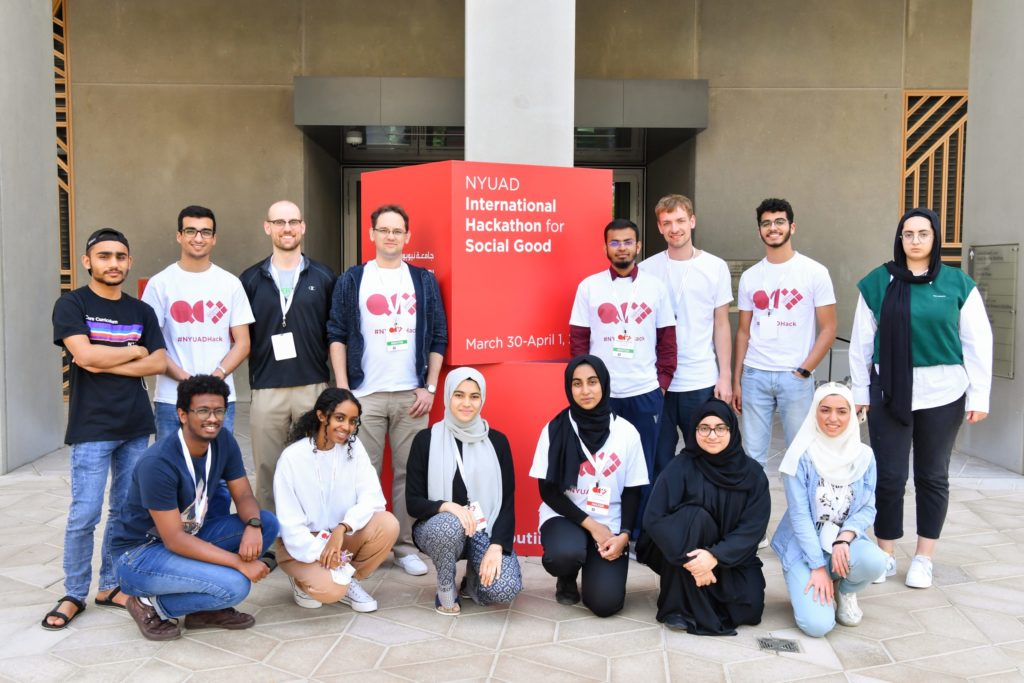Mohammad Aamir Sohail awarded inaugural Quad Fellowship in recognition of his excellence in quantum research and international cooperation

PhD student Mohammad Aamir Sohail is one of four U-M students (three current, one alumna) awarded an inaugural Quad Fellowship. The Quad Fellowship is a joint initiative between Australia, India, Japan, and the United States that is designed to build ties among the next generation of scientists and technologists, and features robust programming with each country’s top scientists, technologists, and politicians.
“I was interested in this fellowship because I will get to meet a lot of different people from different disciplines,” Sohail said. “I will get an opportunity to interact with some of the top and exceptionally brilliant students around the globe, and learn how my research can apply to all these different domains.”
I will get an opportunity to interact with some of the top and exceptionally brilliant students around the globe, and learn how my research can apply to all these different domains.
Mohammad Aamir Sohail
Sohail specializes in Quantum Science and Technology, specifically the theoretical aspects of quantum information technology and quantum computing. He is interested in how to build a fault-tolerant quantum computer, as well as how to speed up optimization and computation with quantum machine learning. This has many useful applications, including optimizing the design and placement of sensors in cars.
Sohail is also working on deriving the bounds of quantum information theory, such as proving what rate you can send and receive messages using quantum channels and counterintuitive quantum phenomenon.
“Let’s say we replace 5G or 6G communication with quantum communication,” Sohail said. “I work on determining what rates we could provide and what the best way to achieve that would be.”
Sohail’s recent research includes computation over a classical-quantum multiple-access channel (CQ MAC), which could help reduce the complexity of quantum communication.
“With computation over MAC, when you have interconnected networks of quantum computers, you don’t have to transmit as much information, so you can increase the rate of transmission,” Sohail said. “This could help reduce the complexity of deep space satellite communication.”
In addition to research excellence, the Quad Fellowship values students who embrace diverse team environments and work to address problems for the public good. Sohail has participated in many international exchange programs, including one in 2018 at Ritsumeikan University in Japan. There, he won a Best Project Award for designing an IoT-enabled smart bin for waste collection and using the Dijkstra (shortest pathfinding) algorithm to solve a dynamic garbage truck routing problem.
“That exchange program was a great opportunity for me, for I also got to know a little about Japanese culture — their working life, professional life, and personal life,” Sohail said. “I learned some of the language as well, and I can introduce myself in Japanese.”

Last year, Sohail mentored a team in the 10th Annual NYUAD International Hackathon for Social Good, held in Abu Dhabi. The goal of the hackathon was for students to apply their quantum computing skills to make a positive impact on the future of society. Sohail’s team, which won third place, developed a web application, mediQal, to optimize mobile medical services in a society that is aging, with the added goal of reducing greenhouse emissions.
“It was a very good experience for me,” Sohail said. “I worked with people from different backgrounds and disciplines, and I also got to mentor undergraduate students. I learned how I can support my junior colleagues, and I learned a lot from them as well.”
Sohail also credits the U-M campus for helping him broaden his social network and embrace diverse perspectives, which is important for the Quad Fellowship.
“U-M is very vibrant and diverse,” Sohail said. “I’ve enjoyed getting to know people from all over the world, and Ann Arbor is so special.”
I’ve enjoyed getting to know people from all over the world, and Ann Arbor is so special.
Mohammad Aamir Sohail
In addition to the university, Sohail said he’s received a lot of support from his advisor, Prof. Sandeep Pradhan.
“My advisor is quite helping in nature, and he spends a lot of time teaching and discussing with me about the research,” Sohail said. “On the personal side, he spends a lot of time making sure his students are doing well, like we’re taking care of our personal wellbeing too.”
Sohail earned his Bachelor of Technology in Electrical Engineering from the Indian Institute of Technology (IIT) Hyderabad. He received several awards from the Indian Institute of Technology (IIT) Hyderabad, including a 2019 Academic Excellence Award for obtaining the highest GPA in the Department of Electrical Engineering, the 2020 Institute Silver Medal for securing highest CGPA in the Department of Electrical Engineering, and the President of India Gold Medal for securing the highest GPA in B. Tech. (Class of 2020).
The Quad Fellowship program is operated by Schmidt Futures in consultation with a non-governmental task force composed of academic, foreign policy, and private sector leaders from each Quad country.
 MENU
MENU 
